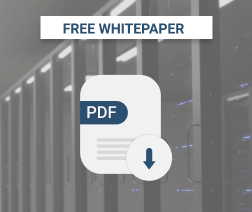Ransomware Protection for MSPs: How to Safeguard Your Clients’ Data
In an era where cyberthreats constantly evolve, ransomware is one of the most menacing hazards to client data security. For managed service providers (MSPs), safeguarding clients' data against these insidious attacks is not just a service but a fundamental responsibility. Our comprehensive guide dives deep into the world of ransomware protection, offering MSPs advanced strategies, practical solutions, and industry best practices to fortify defenses and ensure the highest level of data security. Join us in our commitment to staying ahead of cyberthreats and maintaining the integrity and trust of your client relationships.
Understanding Ransomware and Its Impact on MSPs
Ransomware, a type of malicious software designed to block access to a computer system until money is paid, has become a notorious threat in the digital world. For managed service providers (MSPs), understanding the dynamics of ransomware and its potential impact is crucial for safeguarding their clients' data. This section delves into what ransomware is, how it operates, and its profound impact on MSPs and their clients.
The Mechanics of Ransomware
Ransomware typically infiltrates a system through phishing emails, malicious attachments, or exploiting security vulnerabilities. Once inside, it encrypts files, making them inaccessible to users and system administrators. A ransom is usually demanded from victims for access to be restored, typically in cryptocurrencies like Bitcoin, which makes tracking the payment and identifying the perpetrators challenging.
Further reading How Ransomware Is Evolving
Why MSPs Are Prime Targets
MSPs manage IT infrastructure and data for multiple clients, making them attractive targets for ransomware attacks. An attack on a single MSP can grant cybercriminals access to the data of all its clients, multiplying the impact. Moreover, due to the critical nature of their services, MSPs might be more inclined to pay a ransom to restore benefits quickly, a fact that's well understood by attackers.
Impact on Business Operations
The consequences of a ransomware attack on an MSP are far-reaching. Operational disruptions, data loss, financial damages, legal liabilities, and a loss of client trust are among the immediate effects. The recovery process can be prolonged and costly, not to mention the potential reputational damage that can lead to loss of business.
The Cost of Compliance and Recovery
MSPs often face significant compliance and regulatory challenges post-attack, especially if client data is involved. The cost of aligning with legal requirements and the expense of system restoration and data recovery can be substantial. Additionally, the need to invest in more robust cybersecurity measures post-incident adds to the financial burden.
- Main components of business continuity,
- Difference between business continuity and related concepts,
- Measurable metrics, and much more.
Why Ransomware Attacks Target MSPs
Managed service providers increasingly find themselves in the crosshairs of ransomware attackers. Understanding why MSPs are particularly vulnerable to these cyberthreats is crucial for implementing effective defense strategies. This section explores the reasons behind the targeting of MSPs by ransomware attackers.
Further reading Report: Few Organizations Prepared to Defend Against Today’s Rapidly Evolving Threat Landscape
Centralized Access to Multiple Networks
One of the primary reasons MSPs are targeted is their access to multiple client networks. MSPs typically manage IT infrastructure for several businesses, including sensitive data and critical systems. This centralized access makes them a lucrative target for ransomware attackers, who can potentially compromise multiple entities through a single successful breach.
High-Stakes Data and Systems
MSPs handle a wide array of sensitive data and critical systems for their clients, ranging from financial records to personal information. The essential nature of this data means a higher chance that the victims will comply with ransom demands, as the cost of data loss can be significantly higher than the ransom itself.
The Ripple Effect of MSP Attacks
An attack on an MSP can cascade, impacting numerous businesses that rely on their services. This ripple effect amplifies the potential damage caused by a single attack and increases the likelihood of receiving a ransom payment. Attackers know that the disruption caused by a MSP’s being compromised can pressure multiple entities, elevating the urgency to resolve the issue.
Perceived Weaknesses in Security Postures
Cybercriminals often perceive MSPs as having weaker security postures. This perception can be due to the varied nature of clients an MSP serves, some of whom may not prioritize cybersecurity. Also, MSPs might focus more on client systems than on their internal security, leaving vulnerabilities that ransomware attackers can exploit.
The Value of Reputation and Trust
The business model of MSPs is heavily reliant on trust and reputation. A successful ransomware attack can significantly damage an MSP's reputation, causing loss of current and potential clients. Attackers exploit this vulnerability, understanding that MSPs might opt to pay a ransom to resolve the issue and minimize reputational damage quickly.
Further reading Is Ransomware as Serious a Threat as Terrorism?
Best Practices for Ransomware Prevention
In the face of escalating ransomware threats, managed service providers (MSPs) must proactively protect themselves and their clients. Implementing best practices for ransomware prevention is critical in building a resilient defense against these cyberattacks. This section outlines essential strategies MSPs can employ to fortify their cybersecurity posture and prevent ransomware incidents.
Comprehensive Employee Training and Awareness Programs
The human element often plays a significant role in the success of ransomware attacks. MSPs should invest in regular employee training programs that focus on identifying phishing attempts, suspicious links, and other common tactics used by cybercriminals. Empowering employees with knowledge and awareness is a critical first line of defense against ransomware.
Further reading How MSPs Can Effectively Educate Their Customers on Ransomware Prevention
Robust Network Security Measures
Securing the network infrastructure is essential. This includes deploying firewalls, using intrusion detection and prevention systems, and segmenting networks to limit the spread of ransomware if one segment is compromised. Regularly updating and patching network devices can prevent attackers from exploiting known vulnerabilities.
Implementing Advanced Endpoint Protection
Endpoint protection solutions that use advanced techniques like heuristic analysis, behavior monitoring, and artificial intelligence can detect and neutralize ransomware before it takes effect. MSPs should ensure that all client endpoints have up-to-date antivirus and anti-malware solutions.
Regular Software Updates and Patch Management
Keeping all software up to date is crucial in protecting against ransomware. This includes not only operating systems but also all applications and third-party software. Automated patch management systems can help maintain the latest security patches, closing potential entry points for ransomware.
Strong Authentication Practices
Implementing strong authentication practices is another critical defensive measure. This includes enforcing strong password policies and utilizing multi-factor authentication (MFA) wherever possible. MFA adds a layer of security, making it more difficult for attackers to gain unauthorized access.
Data Encryption
Encrypting sensitive data can reduce the impact of a ransomware attack. Even if data is accessed or stolen, encryption ensures that it remains unintelligible and useless to attackers.
Regular Data Backup and Validation
Regularly backing up data is a critical practice in ransomware defense. These backups should be stored separately from the leading network and routinely tested for integrity. In a ransomware attack, having up-to-date backups can be the difference between a quick recovery and a catastrophic data loss.
Incident Response Planning
Having a well-defined incident response plan is essential for MSPs. This plan should outline the steps during a ransomware attack, including containment strategies, communication protocols, and recovery processes.
By adopting these best practices, MSPs can significantly enhance their resilience against ransomware attacks. It is essential to remember that ransomware prevention is an ongoing process requiring regular review and adaptation to evolving cyberthreats.
Why Choose MSP360?
Choosing MSP360 for ransomware protection and IT management offers many benefits for MSPs and internal IT teams. This advanced platform is designed to combat the most sophisticated ransomware threats, ensuring robust data and endpoint protection.
Advanced Ransomware Protection
MSP360 leverages immutable storage technology, providing bulletproof ransomware protection. This technology prevents data alteration or deletion, ensuring that your backups remain intact, even during ransomware attacks.
Further reading Immutable Backups Explained and How It Works in MSP360
Cross-Platform Backup Solutions
With MSP360 Managed Backup, users gain a versatile, easy-to-use solution with centralized management. It supports various platforms, including Windows, Linux, macOS, VMware, Hyper-V, Microsoft 365, and Google Workspace. This wide range of compatibility ensures comprehensive data protection across all major operating systems and cloud services.
Enhanced Security with Deep Instinct
MSP360, powered by Deep Instinct, adds a robust layer of security. This integration helps prevent known and unknown threats, offering enhanced protection against ransomware and other malicious attacks. Utilizing Deep Instinct's advanced capabilities, MSP360 ensures a high level of security for your IT environment.
Business Growth and Management
MSP360 enables MSPs to build a profitable and easily manageable IT services business. It includes features like monthly billing, no contractual obligations, data protection, remote support, and IT asset management services, which MSPs can offer under their own brand, fostering business growth and client satisfaction.
Comprehensive Endpoint Protection
The platform provides extensive protection for various endpoints, including Windows, macOS, and Linux systems, as well as Microsoft 365 and G Suite accounts. MSP360's secure data backup solution and centralized management and monitoring capabilities ensure that IT assets are effectively protected and maintained.
Cutting-Edge Cybersecurity
By partnering with Deep Instinct, MSP360 adopts a prevention-first approach to cybersecurity. This collaboration brings the world's first and only deep-learning cybersecurity solution to MSP360 users, offering peace of mind with the assurance that malware and other cyberthreats are kept at bay.








